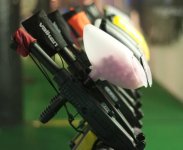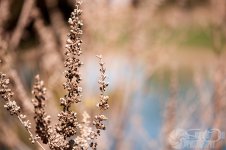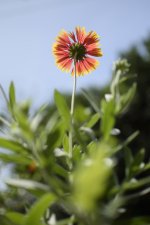You are using an out of date browser. It may not display this or other websites correctly.
You should upgrade or use an alternative browser.
You should upgrade or use an alternative browser.
Your number 1 bokeh prime lens??
- Thread starter wud
- Start date
Scott Murray
Senior Member
I love both my 85mm D 1.4 and 50mm 1.4, but would say the 85mm D is much better.
wud
Senior Member
You don't have it anymore? Love the image
Sent from Tapatalk
sonicbuffalo_RIP
Senior Member
My only prime is the 50 mm 1.8 g ....... but loving the bokeh I'm seeing on this thread!
I'm glad this topic came up. I am new and ignorant to a lot of things in photography and I want to learn as much as I can, as fast as I can. I am not understanding the whole "Prime Lens" thing. (Please don't laugh, I'm new) I understand that you have one focal length with a lower F-Stop (Meaning better in low light situations). But, this means that me as the photographer, has to move closer or further from the subject instead of using a zoom and staying in one spot. I hear that pics are clearer...I won't need as much light....but to be honest, I have some really good bokeh photos that was taken with my 55-300mm. (Except for the close ups of bugs and stuff). Please understand, I am not questioning, bashing or being judgemental, I just want to understand why I would spend money on, let's say a 85mm when I can zoom my 55-300 to the 85 spot. Please tell me why I should spend the money on a lens that I basically have. Thanks and sorry for the Lens 101 question.
WhiteLight
Senior Member
I'm glad this topic came up. I am new and ignorant to a lot of things in photography and I want to learn as much as I can, as fast as I can. I am not understanding the whole "Prime Lens" thing. (Please don't laugh, I'm new) I understand that you have one focal length with a lower F-Stop (Meaning better in low light situations). But, this means that me as the photographer, has to move closer or further from the subject instead of using a zoom and staying in one spot. I hear that pics are clearer...I won't need as much light....but to be honest, I have some really good bokeh photos that was taken with my 55-300mm. (Except for the close ups of bugs and stuff). Please understand, I am not questioning, bashing or being judgemental, I just want to understand why I would spend money on, let's say a 85mm when I can zoom my 55-300 to the 85 spot. Please tell me why I should spend the money on a lens that I basically have. Thanks and sorry for the Lens 101 question.
It's not too complicated..
as a general rule, as the focal length increases, the quality depreciated... slightly
for example the IQ of a 18-200 which covers a lot, is not going to be the best..
along the same lines, a prime lens provides best IQ.
it's manly a matter of convenience & trade offs
if you prefer to cover a lot of area, through one lens - the compromise would be the IQ (very mild difference)
but if you font want to trade off on the IQ, you give up on convenience
that's mainly why most portrait shooters would prefer a prime lens.
since you need to be at the max zoom to obtain the best bokeh (if you've noticed, your 55-200 will have better bokeh at 200mm as opposed to 55), a prime lens is at all times at the max zoom.
tried to put it as simple as possible,so please excuse any technical incorrect blah blah
kevy73
Senior Member
I'm glad this topic came up. I am new and ignorant to a lot of things in photography and I want to learn as much as I can, as fast as I can. I am not understanding the whole "Prime Lens" thing. (Please don't laugh, I'm new) I understand that you have one focal length with a lower F-Stop (Meaning better in low light situations). But, this means that me as the photographer, has to move closer or further from the subject instead of using a zoom and staying in one spot. I hear that pics are clearer...I won't need as much light....but to be honest, I have some really good bokeh photos that was taken with my 55-300mm. (Except for the close ups of bugs and stuff). Please understand, I am not questioning, bashing or being judgemental, I just want to understand why I would spend money on, let's say a 85mm when I can zoom my 55-300 to the 85 spot. Please tell me why I should spend the money on a lens that I basically have. Thanks and sorry for the Lens 101 question.
Howdy Smoke.... Bokeh isn't exclusive to primes. You are correct in saying that you can get some great bokeh using yur 55-300mm variable aperture.
Bokeh is created when you have a good depth of field (DOF) relative to the rest of the image - hard to put into words. Put simply, the closer you are to your subject and the farther the background is to your subject the better the bokeh or creamy goodness you will get. This is all to do with depth of field.
If you understand depth of field and get a good idea of it's workings, you can get those wonderful creamy backgrounds all day long. Yes, it can be easier with a prime lens, because usually, you can open them up more (smaller f stop) thus reducing your DOF, but if you are close enough to your subject and the background sufficiently far away, even at f6 you can have a narrow depth of field and get the bokeh effect.
There is a decent DOF calculator here Online Depth of Field Calculator and you can even get android or iphone apps to have with you in the field.
Hope that helps a little.
wud
Senior Member
I'm glad this topic came up. I am new and ignorant to a lot of things in photography and I want to learn as much as I can, as fast as I can. I am not understanding the whole "Prime Lens" thing. (Please don't laugh, I'm new) I understand that you have one focal length with a lower F-Stop (Meaning better in low light situations). But, this means that me as the photographer, has to move closer or further from the subject instead of using a zoom and staying in one spot. I hear that pics are clearer...I won't need as much light....but to be honest, I have some really good bokeh photos that was taken with my 55-300mm. (Except for the close ups of bugs and stuff). Please understand, I am not questioning, bashing or being judgemental, I just want to understand why I would spend money on, let's say a 85mm when I can zoom my 55-300 to the 85 spot. Please tell me why I should spend the money on a lens that I basically have. Thanks and sorry for the Lens 101 question.
All that White Light and Kevy said, but also, move around when framing your image. Dont just say 'I stand here, this must be the perfect spot' because maybe 1 meter to the right and your image will get SO much better. With a prime you are forced to move more and that is a really good thing
Awww, totally drool!









